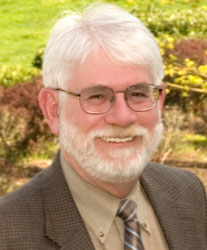You are here
Bennett's Blog: Special Session generates $100 million for K-12
The Special Session of the Legislature ended last week. Legislators passed a package of five bills ranging from new taxes, a $100 million addition to the State School Fund, adjustments in cost of living increases for PERS retirees, and statewide control of genetically modified crops.
The revenue bill raised about $244 million in a mix of higher taxes and revised deductions. Lawmakers divided the proceeds among a list of state programs including appropriation of $100 million to the State School Fund for the 2014-15 school year. Initially plans were to split the SSF increase between the two years of the biennium but legislative leaders decided to focus the increase onto one year and urge school districts to spend the money on added teachers, school days and lower class sizes. The move also increases the impact on SSF rollup in the next biennium. Rollup is based on second-year-of-the-biennium funding levels so the decision will have a substantial impact on initial state budgeting for the next biennium. The additional funds came with no legal strings attached unlike the allocation to higher education, which requires their use for a tuition freeze.
PERS changes were the headline issue of the session. Legislators revisiting the issue passed two bills. SB 861 limits the ability of employees to include the cost of insurance in calculating their final average salary. This change appears to only apply to OPSRP employees not Tier 1 or 2. The bill also limits PERS for future legislators and that PERS benefits for convicted felons are subject to garnishment.
The second PERS bill, SB 862, limits COLAs beyond those set in SB 822, passed in the regular session. Until July 1, 2014, cost of living increases will be set at the 1.5% set out in SB 822. After that the increases will be limited to 1.25% on the first $60,000 and for higher benefit amounts at .15%. In attempt to soften the blow, particularly for those with lower benefit amounts, the legislature added language that gives every PERS retiree an additional supplemental payment of .25% not to exceed $150 on an annual basis. The additional payments are not COLAs because they are not “bankable,” and will appear as an additional cash amount. This supplemental program will sunset on December 31, 2019. The cost of the supplement program is estimated at $36 million over the next six years and will be paid for out of the PERS Contingency reserve so there will be no impact on rates.
Under the bills, payroll rates will not be modified this biennium to reflect the impact of SB 861. The savings, about 2%, will be used to offset the additional rate collar adopted under SB 822. The rate collar is eliminated. Overall, the changes result in an estimated $5 billion reduction in PERS’ unfunded actuarial liability. Although rates are expected to rise in FY 15-17, they are expected to stabilize at a rate about 2% lower than would have been the case without the bills.
Both bills have a direct referral to the state Supreme Court.
The GMO issue was part of the political side of the Special Session and generally put all decisions regarding regulation of seed in the hands of the state and precludes local county action on those regulations except in Jackson County where a measure is on an upcoming ballot. This bill became perhaps the most controversial bill of the Session but was a part of the five bill package Gov. Kitzhaber pledged as necessary for any of the bills to avoid vetoes.

